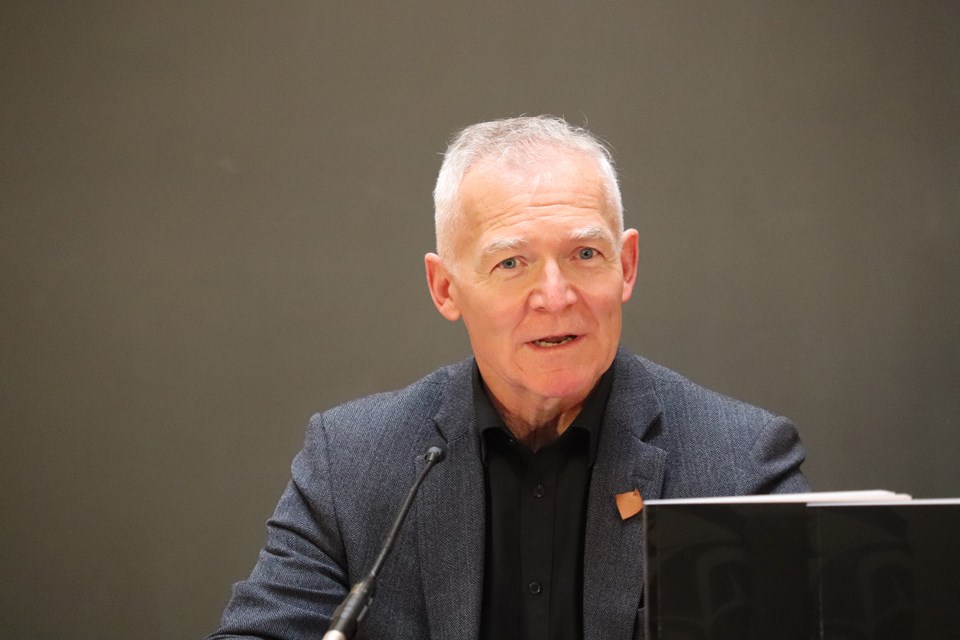The B.C. Assembly of First Nations (BCAFN) is getting $2.24 million in provincial funding over the next two years to support its economic development strategy.
“We are here today for an important announcement for the BCAFN sustainable economic development strategy,” said Scott Fraser, Minister of Indigenous Relations and Reconciliation during a conference this afternoon (April 23) at the Ramada Hotel in Prince George.
“The assembly has created so much to be proud of, which is why I am so pleased to be here today to renew our government’s commitment to economic reconciliation,” said Fraser, adding the BCAFN’s leadership role in sustainable economic development has already created a legacy of success.
The BCAFN’s Sustainable Economic Development and Fiscal Relations Strategy began in 2016.
Since then, it has created a First Nations Economic Development Toolkit, called the Black Books, which features best practices, concepts, and tangible tools for First Nations to improve their economic development strategies and operations.
“Essentially this is the purpose of the Black Books, to provide a guide for our First Nations communities to look at economic development and the many challenges they are facing,” said Terry Teegee, BCAFN Regional Chief. “What we are trying to do is erase those barriers.”
The BCAFN has also created a Champions Table, with the help of the Business Council of B.C. that brings First Nations Chiefs and industry CEOs together.
The Champions Table allows for discussions around economic reconciliation with First Nations to take place, as well as the creation of the Indigenous Intern Leadership Program.
“All the meetings that I have attended with the Champions Table are meetings about good business practices around the province how we can work together and help each other and when we do that we have a better understanding of the economy,” said Wilf Adam from Lake Babine First Nation, who has been a part of the Champions Table since its inception.
“Being part of the economy means there will be stability within the region and in the area.”
As it moves forward, the BCAFN strategy will include economic reconciliation and governance efforts that will support economic development among First Nations, including exploring ways to promote Indigenous efforts, through discussion papers, draft policies, and regional forums.
“Moving forward over the next two years, we certainly appreciate the commitment form this government,” said Teegee. “It’s not just talking about reconciliation its actually implementing initiatives, and walking the walk of what reconciliation really means.”
He said the BCAFN is also looking at creating an institute of excellence or position to assist and support First Nations with economic development best practices.



